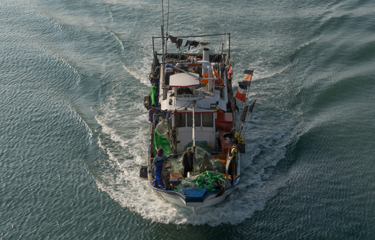Taiwan’s fishing authorities have responded to being placed on a U.S. government blacklist by listing a series of measures it introduced in the past year to combat forced labor.
In October 2020, the U.S. Labor Department placed Taiwan on its 2020 List of Goods Produced by Child Labor or Forced Labor. In response, Taiwan’s Fisheries Agency has ordered the country’s Department of Transport to ensure that all vessels than 24 meters and longer in length must comply with the International Labour Organization’s Convention 188, also known as the 2007 Work in Fishing Convention. Additionally, Taiwan has added forced labor to its requirements for reporting of cases of human trafficking among foreign crew aboard Taiwanese vessels, it said in a statement to SeafoodSource.
In 2020, the agency ran one joint inspection of distant-water vessels with Taiwan’s Ministry of Labor, intended to be a model for additional inspections, the Fisheries Agency said. And it built five new showering facilities for foreign crew members at Taiwanese reports and said it has organized listening sessions where foreign crew members, government agencies and NGOs can talk.
As for Taiwanese vessels operating under flags of convenience, the Fisheries Agency said it has drafted an amendment to regulations governing foreign-flagged vessels entering Taiwanese ports if reports have been received from international agencies or other governments the vessels are suspected of being involved in human trafficking or forced labor.
Greenpeace was one of 34 organizations which last November sent a letter to Taiwan’s parliament seeking action on forced labor it said it uncovered in the country’s distant-water fishing fleet. Greenpeace has called for all migrant fishers on Taiwanese vessels to come under the administration of the Ministry of Labor instead of the Fisheries Agency, as it claims the latter doesn't have labor expertise.
Making the Labor Department’s list – which is used as a reference by U.S. food-sourcing companies and retailers – jolted the fishing industry in Taiwan, home to the world’s second-largest fleet after China. Leading Taiwanese firms include Fong Chun Formosa Fishery (FCF), which owns U.S.-based tuna canner Bumble Bee Foods in January. Greenpeace has called out FCF by name for labor-related problems in its supply chain.
“FCF, a Taiwan-based seafood company and one of the world’s top three tuna traders, should take more responsibility for forced labor risks in its supply chain and be a leader by revamping its business so it fosters an ethical seafood industry that effectively prevents forced labor,” Greenpeace East Asia Ocean Campaigner Pearl Chen said in October 2020.
In January, U.S. Customs and Border Protection issued a withhold release order against a Taiwanese tuna trawler, saying it has received credible information that the vessel was involved in the use of forced labor.
Photo courtesy of Oronzo Leva/Shutterstock







